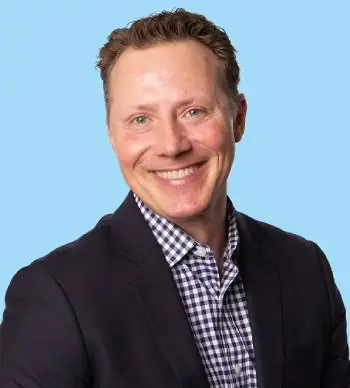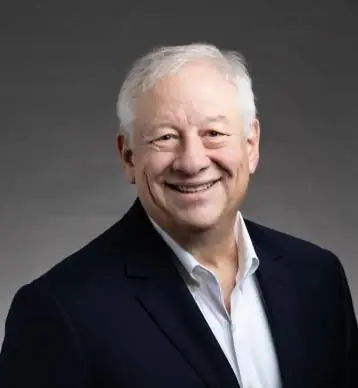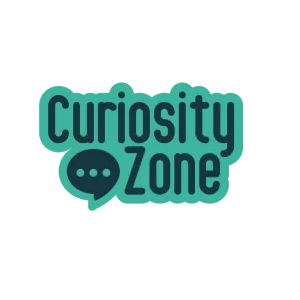Generosity Journeys
By Paul Odegaard, Steve Lear


We are happy to welcome Paul Odegaard from the Minneapolis Foundation as a guest contributor on generosity!
To inspire you during this season of giving, we asked Paul, a Philanthropic Advisor, and his friend, Steve Lear, a Financial Planner, to talk about what motivated them to make philanthropy an integral part of their lives.
How were you introduced to generosity?
Paul: Some of my earliest family memories include radical acts of hospitality. My mother or one of my grandmothers would routinely host family and friends for community meals, expressing their care and commitment through acts of service. Whether we were gathering to celebrate birthdays, grieving loved ones, or sharing joyful holiday experiences, there was always a willingness to host – to put in extra effort to provide space for people and make them feel loved. (And fed – always!) That sentiment deeply informed how I observed those acts in my childhood, and it still informs how I feel and express aspects of my generosity today.
Growing up, I developed an extraordinary relationship with my best friend because my mom responded to another mother whose son was on my basketball team. Josh lived nearby and often needed a ride to practice and games. Our bond was formed in the station wagon as we crisscrossed the Twin Cities together. This simple act – the willingness to help a friend from the neighborhood – illustrated how we need to show up for those we care about and how inclusive we can be when we live a life generously thinking of helping others.
Steve: One of my earliest memories of money wasn’t about saving or spending it—it was about giving it. Our neighborhood came together to organize a Muscular Dystrophy carnival. A bunch of kids just threw together a makeshift carnival with games and snacks, told the neighbors to come, and—amazingly—they did! The kicker? Every single cent went to the Muscular Dystrophy Association. We didn’t keep a dime. I was blown away by how much fun we had while doing something that helped people we didn’t even know. It was my first taste of how powerful giving can be.
Then came my bar mitzvah. Now, let’s be honest: getting up on that bimah was nerve-wracking. I had a voice so high I could’ve been mistaken for one of the choirboys, but there I was, making my debut into Jewish adulthood. But what really amazed me wasn’t the ceremony—it was how many people were generous enough to give gifts, especially money. I remember thinking, “All this for me? Just for getting up here and squeaking through a Torah portion?” It was my first personal experience with generosity, and it left a mark.
Looking back, which experiences were pivotal in helping you to develop a generosity mindset?
Paul: My first real awareness of philanthropic giving blossomed in high school as I observed my dad’s service – he became Board President of our church for a term, and with that role, not only did I notice that people came to him more regularly with questions or ideas in church, but I also saw him gain comfort with giving and the idea of abundance, growing to make leadership-level gifts in support of the organization over time, and expressing his confidence in the church’s direction.
After that, my brother and I played baseball together at Macalester College, and when you’re on a 23-player team, your extended family grows quickly. It didn’t matter if it was Thanksgiving, Easter, or some other day; we routinely hosted 4-6 extra friends each holiday at the polite demand of my parents, who didn’t want anyone to feel alone on a special day when people were gathering, because they were away from their home and family. Through their example, we were taught that our family valued making the tables longer and piling up the chairs because everyone benefited from having a home away from home.
Steve: As a teenager, my generosity journey continued when I joined a youth group. Two men, Barry Cooper and Alan Finkelstein, became beacons of generosity in my life. These guys weren’t just writing checks; they were pouring their hearts into mentoring a bunch of junior high and high school kids. They gave us their time, their energy, their love. But here’s the key—they didn’t just take care of us. They empowered us. We raised money for causes that had nothing to do with us personally, but it made us realize how good it feels to contribute to something bigger than ourselves. It wasn’t just charity—it was fun and shaped my understanding of giving as something that could be joyful and community-driven.
My next pivotal encounter with generosity came from witnessing extraordinary kindness extended to my own family. My first cousin’s husband tragically passed away from Lou Gehrig’s disease. Shortly after, she was diagnosed with stage 4 breast cancer, leaving her in a dire financial and emotional situation as the mother of three young children with no income and no immediate means of support. In response, a close family friend, Shirley Ziskin, stepped in and led a fundraising effort that brought in $45,000, providing much-needed relief during my cousin’s illness.
When my cousin ultimately passed, Sheri and I embraced her three children into our own family. Over time, our children treated their new siblings with genuine love, and our families became one, enriching each other’s lives. My cousin’s foresight in purchasing life insurance helped us meet the financial demands of raising a larger family. We also received additional assistance from family members to cover expenses during our move to a larger home. The emotional support from our community was invaluable, helping sustain us as we adapted to this new chapter of life.
Paul, what led you to a career in philanthropy?
As a mission-oriented person, I’ve strived to work in nonprofit development and relationship management for the past 18.5 years. I came to the work of cultivating generosity as an antidote to a spiritual crisis while working at a branding and strategic communications agency right out of Macalester. About a year and a half into my professional career, one specific client was a totally unethical, misanthropic healthcare insurance company, and we were tasked with helping them launch a product that was intended, in my opinion, to completely take advantage of young people. After one meeting, where all my ethical and practical questions regarding the product and the people soon to be targeted by our branding/marketing plan were completely ignored, I decided I was unwilling to make money doing things that didn’t serve society. I committed to a path of nonprofit development and mission orientation to focus on raising money for causes and missions that serve community.
I first worked at Macalester College for five years after that as an Associate Director of the Annual Fund, where I led the annual fund communication strategy while also teaching the value of philanthropy to graduating seniors and their families and young alumni. After that, I spent seven years at Minnesota Public Radio and American Public Media as a major and planned giving officer, strategically building connectivity between long-time public radio listener-supporters and the future financial well-being of a trusted MN institution. To play a meaningful role in fostering purposeful gifts is so rewarding, whether for $10,000 or $10 Million.
Steve, your decision to volunteer helped to create a new organization. How did that happen?
In 1993, I encountered yet another profound lesson in generosity during the great flooding in Des Moines, Iowa. Three friends and I were planning to volunteer at a Red Cross center, providing food and support. In the parking lot of the Red Cross Center, we met the owner of a box and rag business, and together, we began the challenging process of recovery. This project sparked the creation of Nechama-Jewish Response to Disaster. Nechama’s mission extends beyond volunteers alone; it also loans its equipment, free of charge, to other agencies and private citizens involved in disaster recovery. Over the years, we have fostered partnerships with organizations like the Salvation Army and Lutheran Social Services/Disaster Response and actively participate in the Voluntary Organizations Active in Disaster (VOAD) and Emergency Managers from around the country.
Through Nechama, we witnessed interfaith collaboration that transcended traditional boundaries. Volunteers from diverse backgrounds worked side by side, sharing a singular purpose of aiding disaster-stricken communities. These efforts forged new understandings and respect among various faith groups, building bridges between communities that had rarely interacted. My time with Nechama reinforced a valuable lesson: the relationships we build are far more precious than any material possessions.
What impact does generosity continue to have on your life?
Paul: In 2018, I joined the Minneapolis Foundation as a Philanthropic Advisor, and to this day, it’s my great privilege to help individuals, families, and community deliver resources to incredible causes and opportunities, accelerating positive change in our community. I’ve been blessed to work with remarkably generous people, helping them direct their resources in extraordinary and moving ways.
I’m grateful for my family and for my experiences, supporting a journey of learning and growth.
Steve: Every day, I witness generosity in many forms. Sometimes, it’s through a donation; sometimes, it’s through emotional support; and often, it’s simply giving time by being a good listener or asking the right questions.
We are generous people, and there is always room to grow that generosity! Let’s keep reaching out and giving more however we can.
Where will your generosity journey lead you?
For more information about how to work for positive change, please contact Paul Odegaard at podegaard@mplsfoundation.org or Steve Lear at steve@stevelear.org.


Thank you I am now up-to-date I read all the articles and stories and generosity. Which in many ways and with many views is actually the key to life in civilization itself.
Stan